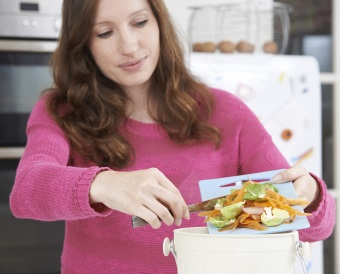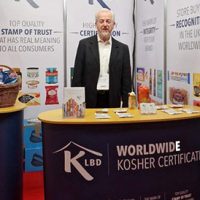The Natural & Organics Show (NOPEX) will be taking centre stage once more at…

Tackling the Problem of Food Waste
It is thought that, in 2015, UK households binned £13bn worth of food – food that could have been eaten. In London alone, one million bags of salad are wasted each week during the summer. As the population continues to rise and the demand for food products increases this serious problem of food waste needs to be, in part, addressed by the food industry.
While the level of food waste in the home is high, there is also an issue within the manufacturing and retail sectors, with waste thought to add up to 1.9 million tonnes of food and drink a year. This is bad for the environment, bad for business and bad for the future of the food industry.
Although the Government set targets to reduce household waste, the volume has been growing steadily, with an increase of 4.4% between 2012 and 2015. So, what is it that is leads to households to throw away so much food and what can manufacturers do to cut these numbers?
 Why is Food Thrown Away?
Why is Food Thrown Away?
There are many reasons for food being thrown away, from simply not liking the food once opened to not understanding for how long the food item is edible.
One of the major contributors to the level of food waste is misunderstanding labelling. This may involve confusion between ‘sell-by’ and ‘use by’ dates or could be down to unclear storage instructions. If this is causing a high volume of food waste, it is important that food manufacturers and brand owners look into how they can cut this number.
How Can Food Waste be Reduced?
While the Government is investing in education and publicity in regards to food waste, food manufacturers can do their bit to ensure that labelling is clear on the packaging. Just by making sure that all food packaging features sufficient information about storage, use by dates and what goes in the food, consumers are given everything they need to know on how to reduce their food waste.
However, the responsibility does not just fall on the manufacturers, but also the retailers and the consumer themselves.
According to WRAP studies, 71% of food waste is made up of household waste; however, 17% is made up of waste from manufacturing. Food manufacturers have been working on cutting the volume of food waste with a reduction of around 200,000 tonnes between 2011 and 2014, although there is still a long way to go. And reverting back to the problem of the bags of salad Tesco has just launched in May 2017 resealable salad bags.
Kosher certification can play a part in the reduction of waste, providing a benefit for both the producer and the consumer. By labelling food and drink products with Kosher certification, consumers can have a greater confidence in a product, particularly if they know the kosher standard or if their diet specifically requires kosher food. The labelling removes the element of uncertainty for consumers, reducing the possibility of the item being thrown away, untouched, simply because the consumer is unsure if they are able to eat it.
If you would like to find out more about getting kosher certified, please do not hesitate to get in touch with a member of our team. You can call us on +44 (0) 20 8343 6245 or send an email to info@klbdkosher.org and we will be happy to advise you further.


 Why is Food Thrown Away?
Why is Food Thrown Away?

